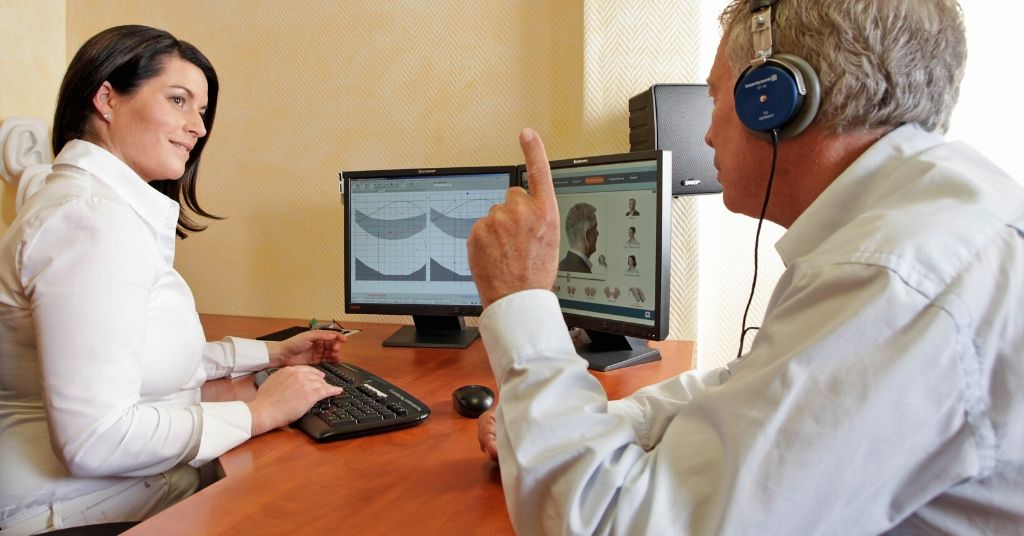
Tips for keeping a baby’s hearing aids in their ears
August 20, 2018
Sonova Japan hosts baseball event to raise hearing loss awareness
August 24, 20185 tips for attending a doctor appointment with hearing loss

For most people, making a booking and attending medical related appointments is a very simple procedure, however, this is not always the case for everyone.
There are a number of issues and challenges which can arise for those with a hearing disability, which would never occur for those in the hearing community when going to an appointment with hearing loss.
Here are some tips for overcoming those challenges to make for a more seamless experience when visiting the doctor.
1. Get to know your doctor’s hospital or office
When registering with a new general practitioner (GP), take time to get to know how the layout of where they work. Most hospital and doctor’s offices have an online presence and many offer online appointment booking, cancelation, and medication repeat prescription ordering.
Look around the practice and see how patients are called for their appointments. You might be surprised that many GP’s now have illuminated signboards which flash up both the patient’s name, with the GP’s name and room.
This is very useful but does have its drawback. Each time the board changes to a new name an audible beep is heard in order to draw people’s attention. So do make certain that you sit or stand in a place where you can clearly read the board.
Even if you are familiar with where you are going, do take the extra time to really make yourself aware of the way everything is done. It will save you both time and uncertainty in the long run.
2. Be visible
One mistake many people with hearing loss make is to attempt to fit in and not draw attention to themselves. Where health professionals are concerned this is a big mistake.
Doctors, nurses and allied healthcare professionals operate on a system of information. Therefore, they will assume the knowledge they need to know is available within the files.
Unless the staff is aware of your hearing problems, standard procedure is to assume that you have perfect hearing.
Hearing loss is still an invisible disability and as such, will more often than not either be overlooked or underestimated.
Make certain that you inform the staff at reception that you are hard of hearing. Simply telling them this can be like uttering a magic word. They will more often make sure to speak clearly and will often get medical staff to come to you when it isn’t your appointment time.
If you dislike talking about your hearing loss in front of other patients, you can buy a badge which states your particular hearing challenge. Some people wear these discreetly under their lapel; this can be shown to someone without telling others behind them in a queue.
You can also purchase a personal awareness pack from the charity Hearing Link. This contains a plethora of helpful items to let people know you have a hearing loss. Some items include a hospital inpatient alert card and wristband stating I have a hearing loss, please speak clearly. There are also international deaf symbol stickers that read ‘please speak clearly’ and 40 medical record stickers.
The medical record stickers are extremely helpful for those who make regular hospital visits, seeing different doctors and nurses. Each medical file can be stickered, alerting all staff to your particular disability, without drawing undue attention to yourself.
3. Be ready to explain
There is an expectation for those involved in healthcare to have a very thorough, clear and practical understanding of all health issues and disabilities. The truth of the matter is in fact very disappointing.
Medical professionals are incredibly busy people and have an enormous workload. Unless their specialty field is within the hearing loss arena or they have personal experience, the chances are they will have either very limited or no knowledge on the subject at all.
In fact, when it comes to the subject of hearing loss they can be as uninformed as the rest of the hearing community. It is important to make sure that they understand your needs and particular challenges, before and during clinical appointments.
In-line with the majority of the mainstream hearing community, there are misconceptions when differentiating between deaf and hard of hearing people. Most medical professionals assume that hearing aids completely compesnate for what deaf and hard of hearing people can’t hear.
I, myself had an experience where a GP told me that my hearing seemed perfectly normal. Two months later I was wearing two hearing aids prescribed by an audiologist whom I had had to fight for the right to see. This as due to the doctor’s lack of knowledge and understanding of different deafness levels.
4. Know yourself
Before making bookings for medical procedures and checkups, it is vital that you have at least a reasonable awareness of what your own particular challenges are, where your hearing is concerned.
You really are your own expert, as to how you feel in certain situations and how your hearing aids work for you. For example, some people, myself included, have no trouble with a single one to one conversation. But when there is more than one person talking, it can be harder to hear. This is especially true if they are talking across and over each other. It is very easy to get lost in a situation like this and the result is far from good for all those involved.
You might be a lip reader, well, that is certainly something to consider well ahead of time. Your hearing aids may not be strong enough in a noisy environment such as a waiting room. Hearing your name called out, when there are other conversations going on can be very hard.
Being hearing loss aware will pay dividends in the long run, because it will greatly add to your overall confidence when it comes to attending.
5. Know your rights
As a person with hearing loss you have the same rights as any other person.
However, as someone considered as having a disability by mainstream society and certainly by the medical profession and allied fields, you have the right to access appointments in the same way others do, regardless of your difficulties.
This means that doctors, nurses, and their staff have an obligation to ensure that you are able to attend any and all appointments with the same level of care and personal needs awareness as any other patient, regardless of their individual condition or challenges.
This really is good news for anyone with hearing loss. It means that informing those who we need to deal with, is not something akin to complaining, but merely a way of exercising our rights as a citizen. It is not asking for preferential treatment, it is having accessibility to what is needed.



